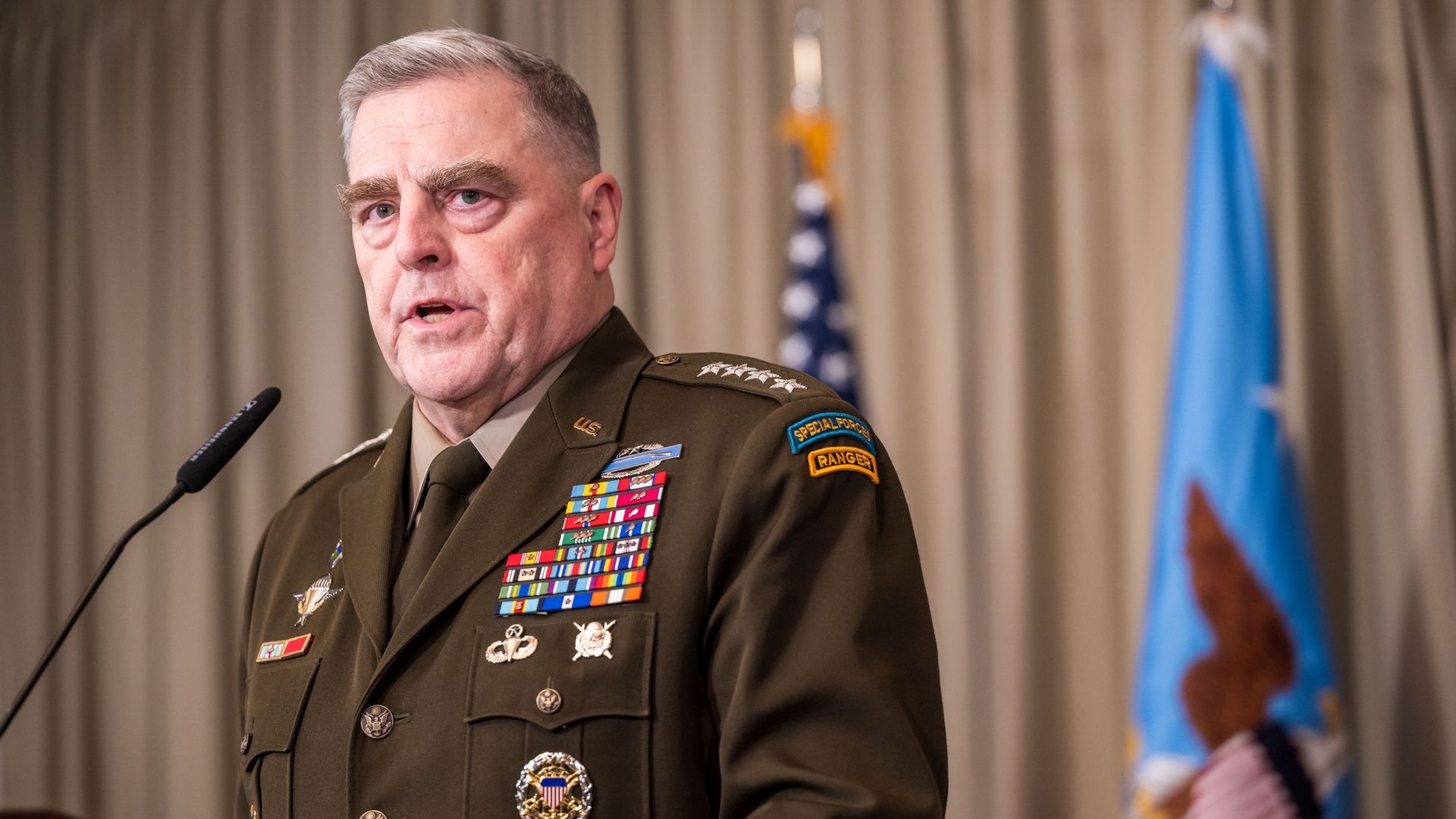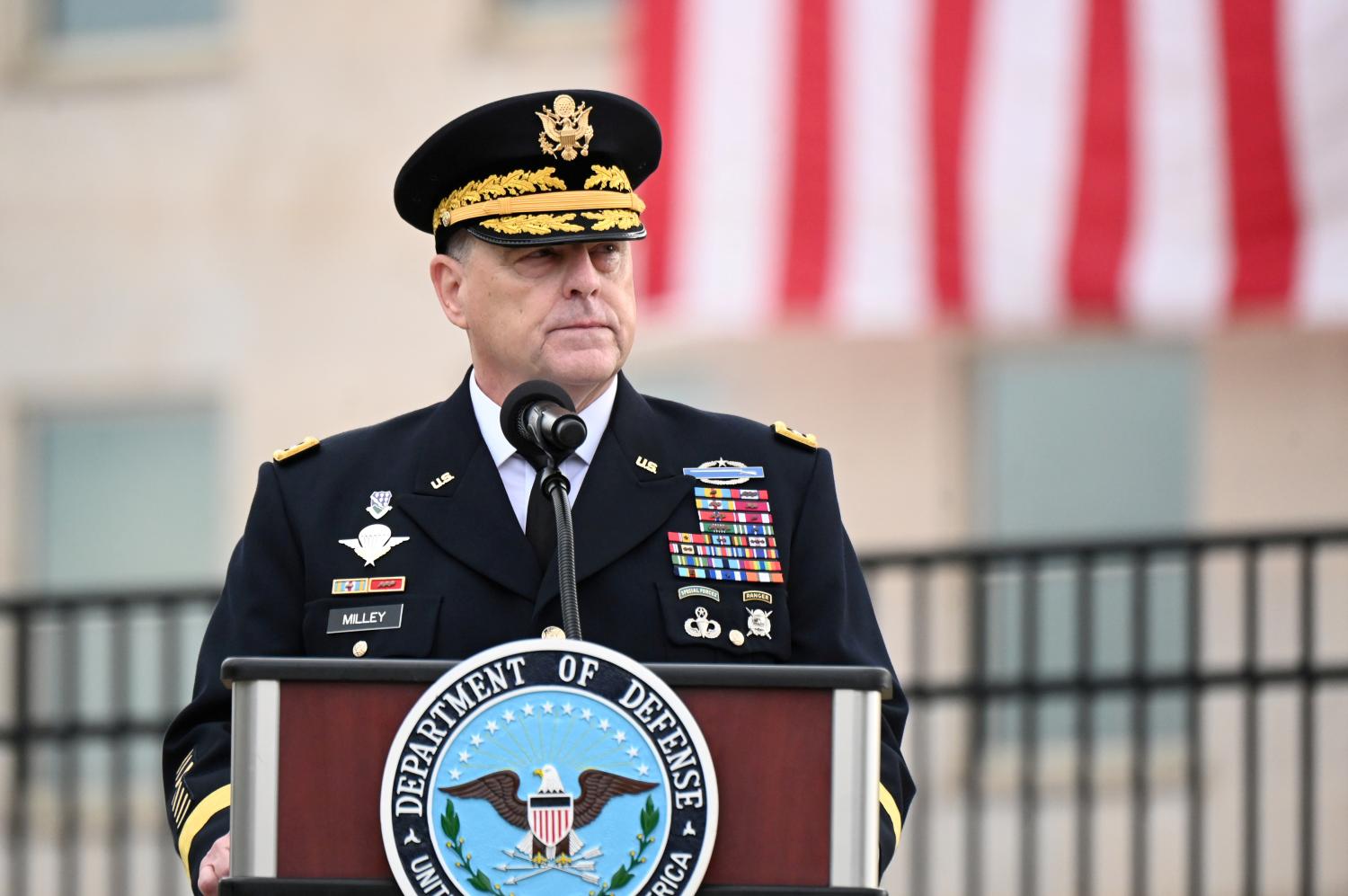A pair of Republican senators are demanding a fresh investigation into whether former Joint Chiefs Chairman General Mark Milley undermined civilian control of the U.S. military during his time in office. This demand comes as Senators Chuck Grassley of Iowa and Jim Banks of Indiana express dissatisfaction with the findings of a previous investigation, arguing that the issue is too critical to be overlooked.
In a letter addressed to the Defense Department Inspector General, the senators called for Milley to be held accountable if it is determined that he misused his position as the senior military leader.
The request for a new investigation follows a similar probe initiated by Defense Secretary Pete Hegseth, who took the dramatic step of stripping Milley of his security detail four months ago. Hegseth also ordered a review of Milley’s conduct during his time as the Chairman of the Joint Chiefs, which is now examining whether Milley should face any further consequences, including a reduction in his rank after retirement.
Milley, 66, was appointed by President Donald Trump to the role of Chairman of the Joint Chiefs in 2019. However, the relationship between Milley and Trump soured during the summer of 2020 after Milley publicly apologized for appearing in a controversial photo op with Trump outside the White House during civil unrest.

Milley described the photo op as an improper endorsement of a political event, which violated the nonpartisan nature of the military. This apology marked a pivotal moment in the deteriorating relationship between the two.
The conflict between Milley and Trump extended beyond this public incident. The two clashed over the role of the military in enforcing laws on American soil. Milley expressed concerns about the potential use of the military to quell protests and uphold political agendas, ultimately accusing Trump of being a threat to democracy and a “wannabe dictator.”
These comments solidified the growing divide between the two men, leading to a complete breakdown of their working relationship.
Trump’s harsh criticisms of Milley didn’t stop there. During his second presidential campaign, Trump went so far as to suggest that Milley should be executed for his interactions with Chinese military officials during the presidential transition in 2020.
Milley, in his defense, argued that these conversations were standard diplomatic protocols meant to reassure foreign leaders that the U.S. political transition would remain peaceful and orderly. Despite Milley’s explanation, Trump insisted that these talks were not only inappropriate but treasonous.

Milley’s concerns about his personal safety in light of the rising political tensions were explored in the book War, written by Bob Woodward and published last year. In the book, Milley expressed a fear that if Trump were re-elected, he might attempt to bring him back into active duty in order to put him on trial for treason.
These comments, along with Milley’s growing reputation as an opponent of Trump’s authoritarian tendencies, have further fueled the investigation into his conduct during his time as the top U.S. military officer.
In response to this political turmoil, Defense Secretary Pete Hegseth’s investigation request even raised the possibility of criminal charges against Milley for his ongoing conflicts with Trump. However, the Inspector General’s office conducted a review in 2022 that concluded without any formal charges or recommendations for punishment.
The senators, unsatisfied with the results of this review, have called for the matter to be revisited and for Milley’s conduct to be re-examined in light of new developments.
The current investigation is complicated by the absence of a Senate-confirmed leader in the Defense Department Inspector General’s office. After President Trump fired Robert Storch in January 2021, the office has been led by Acting Inspector General Steven Stebbins. It is Stebbins who is now overseeing the ongoing review requested by Hegseth.

As this renewed investigation unfolds, there remains a significant political and legal debate surrounding Milley’s role during his tenure as Chairman. While Milley’s defenders argue that his actions were motivated by a commitment to democracy and national security, his critics contend that his public defiance of Trump’s wishes amounted to a breach of civilian control over the military.
The investigation could result in major consequences for Milley, depending on the findings.
In a notable move to shield Milley from potential prosecution, President Joe Biden issued a preemptive pardon for the former general before leaving office. This pardon was seen as a safeguard against potential retribution by Trump, whose relationship with Milley had become increasingly contentious.
Milley expressed his gratitude for the pardon in a statement at the time, emphasizing that after forty-three years of dedicated service, he did not wish to spend the remainder of his life fighting legal battles fueled by perceived slights.
Despite the challenges he faced throughout his career, Milley’s tenure as Chairman of the Joint Chiefs has been marked by significant accomplishments. His leadership in overseeing the U.S. military’s role in global operations, as well as his advocacy for a strong, independent military, has earned him both praise and criticism.

Milley’s outspoken stance on issues like democracy, political interference, and military autonomy has left a lasting imprint on his career, but it has also made him a polarizing figure in American politics.
As the investigation into Milley’s conduct continues, the future of his military career and legacy remains uncertain. The outcome of the inquiry could have profound implications not only for Milley’s personal future but also for the broader question of civilian control over the military in the United States.
With tensions continuing to simmer between Milley and Trump, and with Republican senators now pushing for greater accountability, this investigation promises to be one of the most consequential political and military affairs in recent American history.
The public will closely follow the results of the investigation as it unfolds, with many wondering whether Milley’s actions were justified or if they overstepped the bounds of his military role. Ultimately, the resolution of this case could reshape the relationship between the U.S. military and civilian leadership for years to come.



